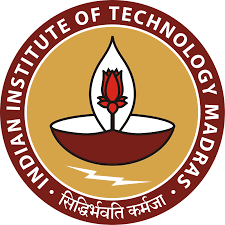A PhD in Harbour & Ocean Engineering requires a master's degree in another field. This field consists of engineering and management of shipping, as well as the maritime environment. The program is highly specialized and requires extensive research and field experience. It has excellent facilities for conducting experiments and research. The Ph.D. is accredited by the Association to Advance Collegiate Schools of Marine Science and Technology.
In addition to teaching, the Ph.D. program emphasizes coastal, offshore, and ocean resources engineering. Coastal and offshore engineering focus on the coastal and nearshore environment, storm surges, and tsunamis. Offshore engineering is concerned with systems and structures in the deeper waters. To earn the degree, students must complete course requirements similar to those for the MS in ORE. The degree is completed with an exam that is a comprehensive and qualifying examination. The dissertation should be at a high level, and defense is required for the final degree.
The Ph.D. in Ocean and Resources Engineering emphasizes marine, coastal, and offshore engineering. The PhD program prepares students for careers in ocean resources engineering, ocean-related research, and government policy-making. The program is available online from Stevens University, Galveston, TX. The Ph.D. program emphasizes the study of coastal and offshore engineering. The program's core courses consist of marine biology, hydrodynamics, and offshore structures and systems.
Ph.D. in Harbour & Ocean Engineering Eligibility
Candidates who want to take admission in Ph.D. must have a post graduate degree in Harbour & Ocean Engineering and its relevant discipline with at least 55% marks from a recognized university and must have passed the national level entrance examination or university level entrance examination. National level entrance exam like UGC NET / UGC CSIR NET / GATE / SLET or University entrance exam consisting of written test and personal interview.
The Benefits of a PhD in Harbour and Ocean Engineering
A PhD in Harbour & Ocean Engineering can lead to a variety of exciting career opportunities in a broad range of maritime environments. The discipline is highly interdisciplinary, allowing graduates to choose courses relating to coastal processes, renewable energy, and marine mapping. Upon completion of their degree, graduates are prepared for careers with government research laboratories, large corporations, and consulting firms. In addition to being well-rounded and technically proficient, Ph.D. students can also work in academia and conduct research at the forefront of the field.
The Department of Naval Architecture and Ocean Engineering is one of the oldest universities in the world. The department was established in 1943 and was the first university to offer scientific research and higher education in China. In 2017, the department ranked third in Shanghai's ranking of academic subjects. The Department is very well-organized, with over 160 faculty members. It is supported by five national centres and numerous industrial research centers.
A Ph.D. in Harbour & Ocean is an excellent choice for professionals in the field, especially for those who wish to further their career. Many students choose to pursue a Ph.D. in Harbour & Offshore Engineering in order to work in the field for more than 20 years. This degree prepares graduates for the next level of higher education, and is a great asset for the professional life of a graduate.
The Career Opportunities of Ph.D. in Harbour and Ocean Engineering
After completing a Ph.D. in Harbour & Ocean engineering, students can choose to work in various fields related to the ocean. Graduates are prepared for jobs in large and small companies, government research laboratories, and consulting firms. Some positions require CAD skills. If you're interested in pursuing a career in this field, consider obtaining a Ph.D. in this discipline.
A PhD in ocean engineering can take you to a variety of fields, including marine structures and beach protection. You can also study wave and current interaction, numerical and physical modeling of ocean processes, and offshore petroleum recovery. You'll have the opportunity to study coastal and offshore structures, as well as use your knowledge in designing and operating autonomous underwater vehicles and ports. In addition to studying the dynamics and engineering of waterways, you can also focus on environmental problems and their impacts.
The program at Stevens University is located near the New York Harbor and boasts one of the world's fastest towing tanks. Additionally, the school is renowned for its ocean engineering research, and its faculty have pioneered the field of naval architecture for over eight decades. They developed the Savitsky Method, which is now the standard for measuring the performance of high-speed craft.
The Future Scope of a PhD in Harbour and Ocean Engineering
A PhD in harbour and ocean engineering opens a wide range of career opportunities. Graduates are well prepared for jobs in government laboratories, large and small corporations, and consulting firms. In addition, these engineers can work as scientists and consultants in research facilities. Among other things, this degree prepares students for postdoctoral studies at renowned universities. And because it's such a challenging program, it is highly regarded.
The field of marine engineering is a broad one, encompassing all areas of maritime engineering. Its focus is on the systems and equipment onboard ships and other vessels. Marine engineers specialize in marine navigation systems, combining the principles of electrical, mechanical, and computer science. The job scope is very diverse. Some graduate students pursue careers in oceanographic technology, while others pursue careers in coastal and shipbuilding.
The future scope of this degree field is wide, and many new opportunities are opening up. This field combines electrical, mechanical, and civil engineering fields. The study of marine engineering also focuses on the design of deep-sea cables, which are responsible for 99 percent of all global internet traffic. The cable systems have to withstand harsh conditions and sea life interference. For example, submarines often need to withstand extreme temperatures and pressures.
Ph.D. Research Programme duration
The Ph.D. in Harbour & Ocean Engineering course is minimum 3 years and maximum 5 in duration. This depends on the university offering the course.
Fees for research programme for Harbour & Ocean Engineering
The average fee for Ph.D. in Harbour & Ocean Engineering degree is between INR 50000 and INR 500000.
 0 Years
0 Years
 PhD
PhD
 Research
Research














 back
back